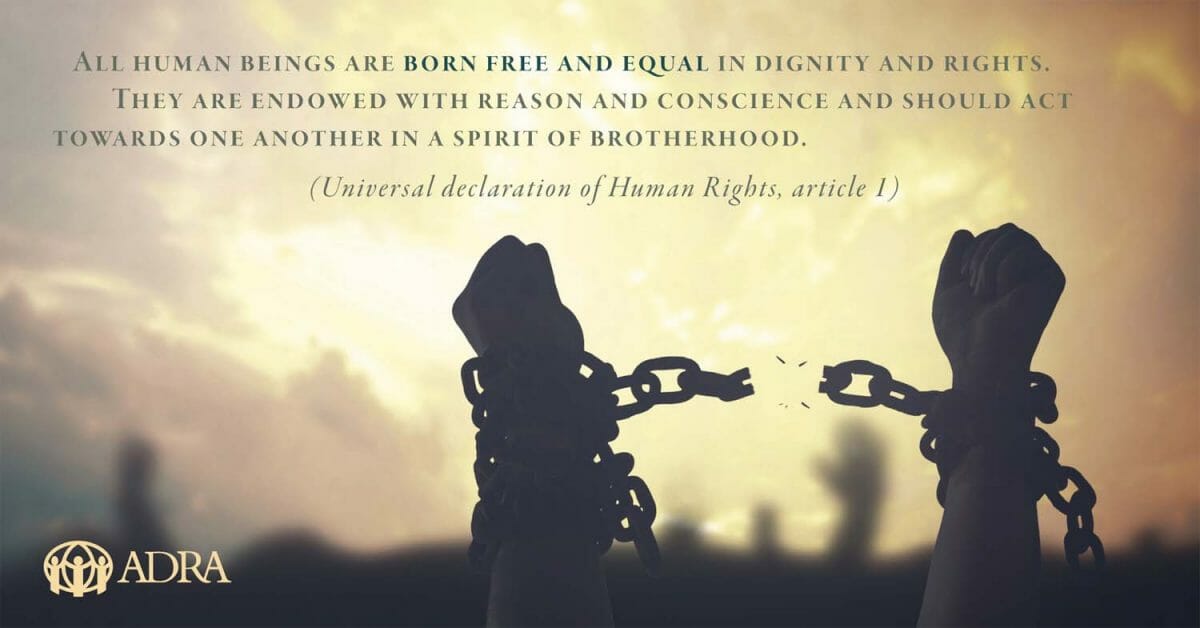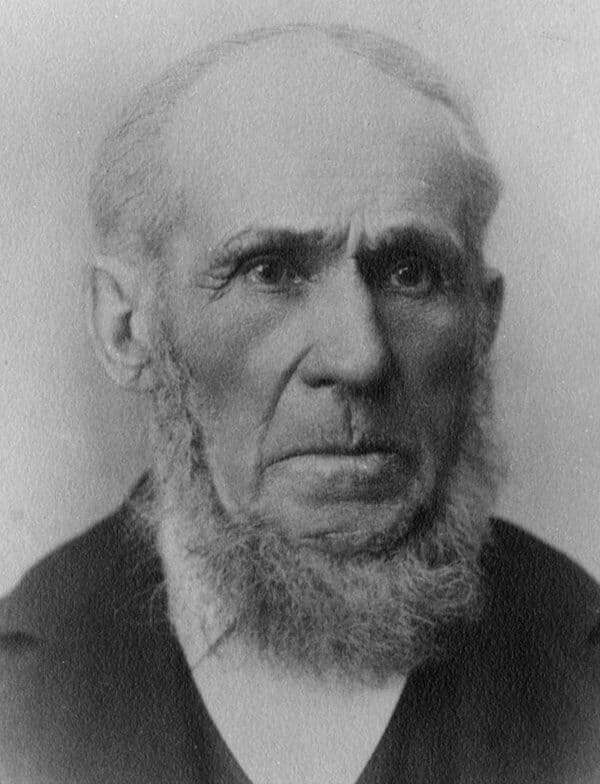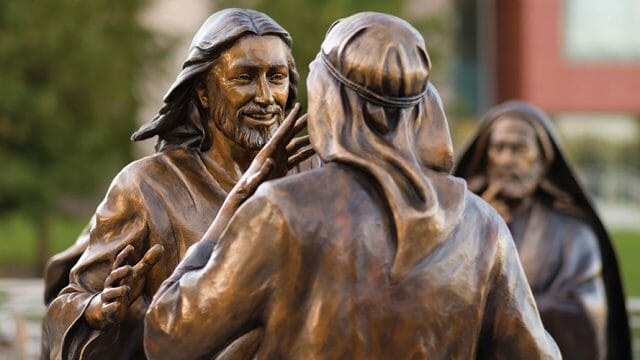On 70th anniversary of the Universal Declaration of Human Rights, ADRA Europe makes a strong statement.

On December 10, 1948, the United Nations General Assembly proclaimed the Universal Declaration of Human Rights as a document to prevent the repetition of the horrific human rights violations committed during World War ll.
On the 70th anniversary of that milestone, the Adventist Development and Relief Agency in Europe (ADRA Europe) published Decoding the ADRA Genome. The main article shares some of the historical roots — the “genome” — of the Seventh-day Adventist Church’s longstanding commitment to human rights for all. Among the first Adventist advocates of human rights were John Byington, who became the first president of the General Conference of Seventh-day Adventists in 1863, and church co-founder Ellen G. White. Below we share the main text of the booklet published by ADRA Europe. — Adventist Review editors
He has a firmness in the eyes, unsmiling lips, wrinkles around the eyes, a gray beard, and silver hair. Dressed in a white shirt and black frockcoat, this is John Byington, in the only preserved photo of him. He was an Adventist Church pioneer who lived in the mid-nineteenth century.

There is much more to Byington than just this simple picture. As a pioneer of the Seventh-day Adventist Church, he stood up for human rights in stark contrast to the majority of people in his time.
Byington was an abolitionist, holding strong views against slavery. He frequently both chaired and participated in abolitionist conventions, signing petitions demanding that the US Congress abolish slavery, which he called “an outrage” and “a sin.”
New historical evidence indicates that Byington and his brother Anson actively assisted fugitive slaves escaping to Canada along the famous Underground Railroad, which ran near his home in Bucks Bridge, New York, United States. It’s hardly surprising that throughout his life, Byington and his family enjoyed a close relationship with African-Americans.1
A significant number of Christian abolitionists left their church denominations because those churches did not actively and loudly oppose slavery. A number of those “rebels” became members of the Seventh-day Adventist Church. It was true for Byington, a Methodist, who later in his life became the first General Conference president of the Seventh-day Adventist Church.
Another Adventist pioneer, Ellen White, stated, “Christ came to this earth with a message of mercy and forgiveness. He laid the foundation for a religion by which Jew and Gentile, black and white, free and bond, are linked together in one common brotherhood, recognized as equal in the sight of God.”2
White called slavery “a sin of the darkest dye,”3 demanding that those who publicly defended it should be disfellowshipped. She forcefully wrote, “The law of our land requiring us to deliver a slave to his master, we are not to obey.”4
While even some of the abolitionists refused to go so far as breaking the fugitive slave law, White recommended disobeying this federal statute. She did this on the basis that this law conflicted “with the word and law of God.”
ADRA is the humanitarian arm of the Seventh-day Adventist Church. As such, ADRA and the church share a common genome. We encourage people to promote justice and human rights for every individual around the globe. In the same way that Jesus quoted from Isaiah as the basis for His ministry, we hold dear the words that we are “to proclaim good news to the poor . . .[,] proclaim freedom for the prisoners and recovery of sight for the blind, to set the oppressed free, to proclaim the year of the Lord’s favor” (Luke 4:18, 19, NIV).
On the 70th anniversary of the United Nations’ Universal Declaration of Human Rights we reemphasize that as church members and ADRA employees, volunteers, partners, and supporters, we believe that all lives matter, have equal value, and should have equal access to all human rights.
The original version of the document is posted with this story on the Trans-European Division news site.
______________________________
1. Brian E. Strayer, “Remembering the Radical Politics of the Pioneers: John Byington,” The Adventist Peace Fellowship blog, January 25, 2015, https://adventistpeace.wordpress.com/2015/01/25/john-byingtons-radical-abolitionism-by-brian-strayer/.
2. Ellen G. White, Testimonies for the Church, 7:225.
3. Ibid., 1:359.
4. Ibid., 1:202.








